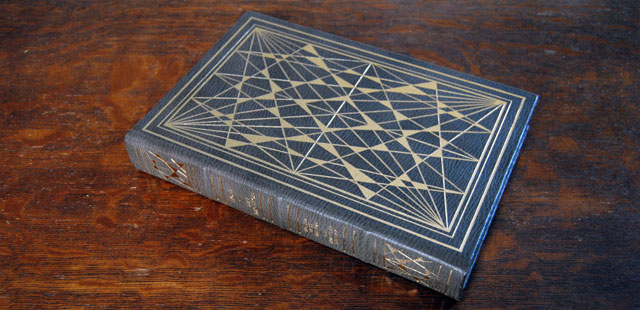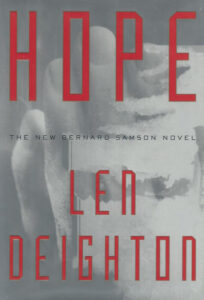
Despite being the middle book in the Faith, Hope, and Charity Trilogy, Hope is singular in its focus and faster-paced than most of the books in Deighton’s Bernard Samson series.
The premise is simple. Bernard Samson’s brother-in-law is missing and Samson is tasked with tracking him down. He’s accompanied at first by his boss Dicky Cruyer, but as the trail winds its way through Poland and Germany, clues and details emerge to create vastly different theories from some of our characters to change the nature of the mission.
While it’s not entirely self-contained, Hope is perhaps one of the most complete and stand-alone books in all of the Samson series, which is saying something since it is the middle book in its trilogy. At the beginning of a few of the other novels in this series, Deighton does explain that all of the books should be able to stand on their own merit. While I don’t want to argue with an author whom I love, this book might be the true exhibit A for that statement.
 Being the middle book of a trilogy, it ends well enough because, without spoilers, we all have read plenty of books that tie up one main thread and leave many others loose. How is this any different?
Being the middle book of a trilogy, it ends well enough because, without spoilers, we all have read plenty of books that tie up one main thread and leave many others loose. How is this any different?
Well, the difference is the comfort in knowing at least a few of those threads should be tied up in Charity, the final chapter in this trilogy.
Baked into this story is the real stock market crash of 1987 where Deighton has some characters referring to the Dow crashing 508 points, while others point to the financial collapse as a point in a theory they are crafting.
The Samson trilogies are often idioms; Game, Set, and Match; Hook, Line, and Sinker; and finally Faith, Hope, and Charity. The titles are often baked into the story, but for the first time, Hope may be the book where it feels ironic. This isn’t a hopeful book, at least not to someone who’s read all those other novels.
On the surface it appears to use hope as a crutch. But our favorite pragmatist who has “never pragmarred” Bernard Samson is discomforted throughout the entire book. This may be the only knock against this book as a standalone read. His uneasiness is palpable because of the books that came before it, and I don’t know that the small history lessons within the covers of Hope are enough to make it felt for the random reader who happens upon only this novel.

Author Len Deighton
Is that necessary? No. I think it allows for a deeper understanding for those who have read what comes before, but I don’t think that it would take away any of the fast-paced, mission-focused directives that Bernard and the rest of this motley crew get up to.
But I must say, I’m a little uneasy going in to the next and last book in the Samson series, Charity. Why?
Because unlike every other book I’ve read in this series, this one has a finality that comes from having read all that came before and it’s hard to ignore that.
Still, that’s my own cross to bear. Hope is a wonderful novel and if you can only read one Bernard Samson joint, this might be a good one. The series as a whole is wonderful, but if you only have time for one, why not have Hope?
Read the Secret File of technical information and quotes from Hope by Len Deighton.